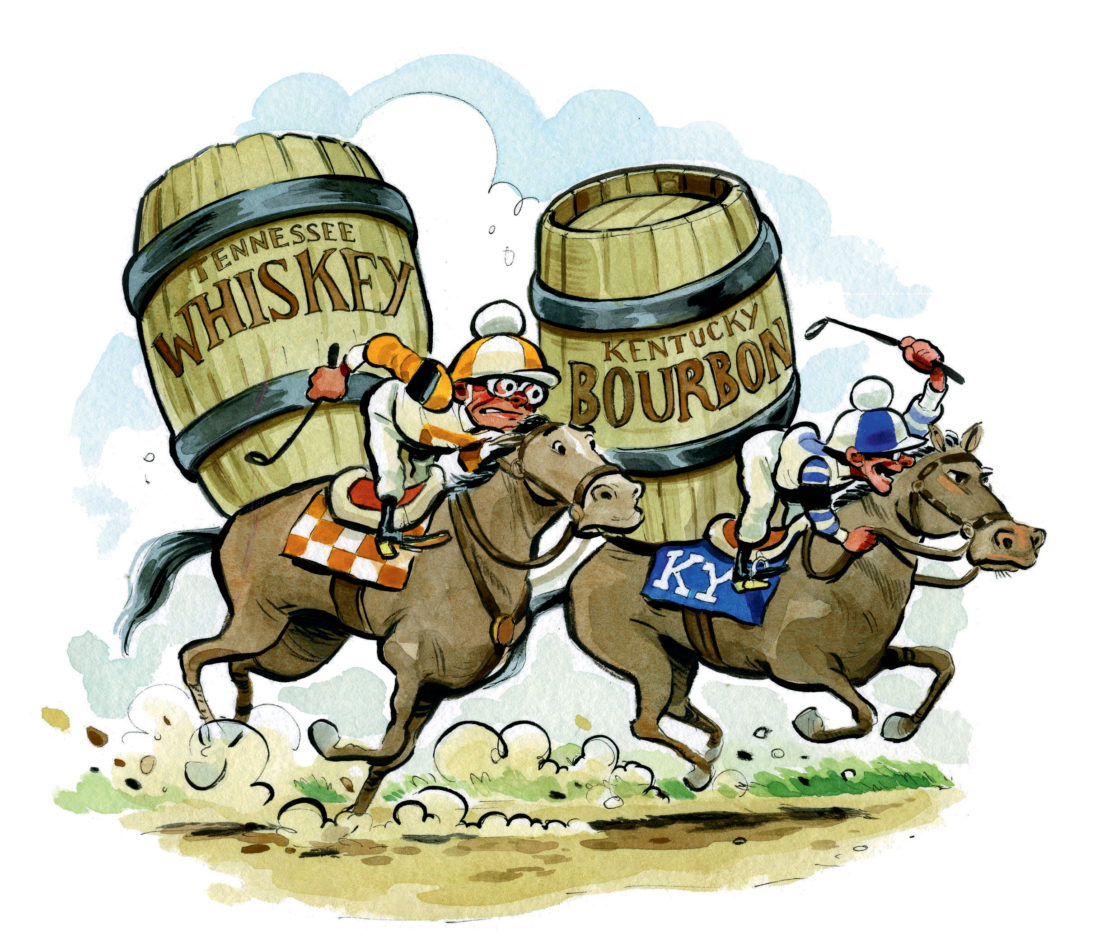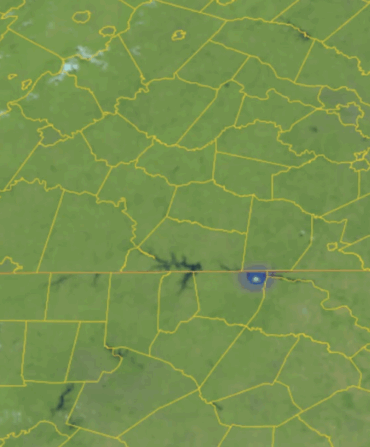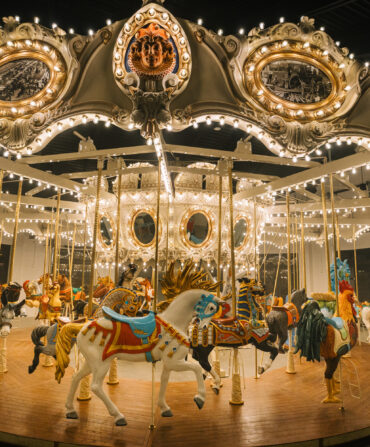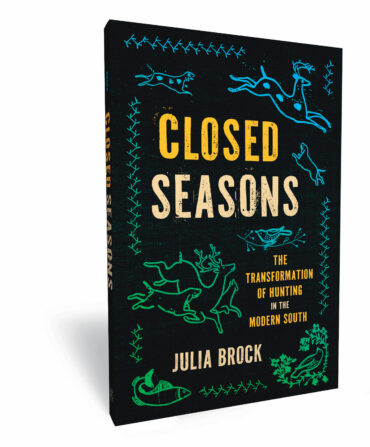Q: Who makes the real bourbon, Kentucky or Tennessee? Tennessee’s is the fake one, right?
A: We have the contacts for an excellent team of former Delta Force commandos for your security in the state of Tennessee, so let us know if you’re headed that way. But if I were you, I’d give Nashville, Tullahoma, Lynchburg, Kelso, Lynnville, and Chattanooga, the distillers’ towns, a wide berth. Your safety aside, let’s take a stroll back to the Paleozoic, 450 million years ago, when a layer of limestone (read: minerals) was formed in what became central Tennessee and Kentucky. Those minerals give that clear, rich upland-South water, and by extension, the corn and the mash, their amazing tang. Like all great food and drink, whiskey contains another powerful flavor-making ingredient: pride of place. If a metric is needed for that, Tennesseans don’t even call their whiskey bourbon. State law requires Tennessee whiskey to undergo charcoal filtration, a process introduced in the nineteenth century, which Kentuckians eschew. Kentucky does lay claim to Bourbon County, whose seat is actually Paris—God bless ’em for the King Louis homage, but the French were 650 miles south, down on the Gulf, and the county originally belonged to Virginia. According to legend, the distillers stamped “Old Bourbon,” their version of the county name, on the barrels, and that became the liquor’s sobriquet. So, what’s real? This: Tennessee and Kentucky excel at distillation by right of their geology and their generations of talent, whose long-running battle for taste and honor will have no end. They keep to what we could call Barbecue War Rules: You do it your way, I’ll do it mine.
Q: No idea how to pick a horse at the Derby. Pointers?
A: Thoroughbreds are fleet, highly strung athletes, but they aren’t inexplicable. Like all adolescents, the Derby’s three-year-olds don’t know themselves yet. Your goal is to think like a trainer—the more questions you fashion, the merrier your betting. If it rains, do they mind running through gobs of mud rocketing into their faces from other horses? Will they come unglued when the marching band blasts “My Old Kentucky Home” and a crowd of 160,000 well-fueled racegoers rages around them? At a mile and a quarter, the Derby is long for them. Your job is to ponder the imponderables, like this: With its huge fields of twenty, the break from close to the rail at Churchill Downs is a really tough rugby scrum; ergo, if your pick is starting from the inside, he could get boxed in. Does he have what trainers prize as “tactical” speed, meaning, can he hold back, then make his move through the pack? Now you’re betting the adolescent’s presence of mind in battle. Study what his daddy did. But before you bet a dime, go to the paddock as they saddle up and look for the brawny polish of a fit horse, the definition of the muscles in his chest, shoulders, hips, and legs, the luster of his coat. If he looks deep like that, he’s ready to run.
Q: I’m confused—someone told me that not everywhere in the Bluegrass State qualifies as Bluegrass.
A: Man, this whole chamber of commerce “nice” tone we promised in salute to the great state of Kentucky isn’t working out the way we thought, but okay, have it your way. Some say there are fifteen counties in the Bluegrass region. Purists might say seven: Woodford, Jessamine, Fayette, Bourbon, Harrison, Scott, and Franklin. They’re loosely bound on the east by the Cumberland Plateau and on the west by the ribbon-like Kentucky River. Beyond that is certainly some fine country in what Kentuckians, who may be waxing patriotic on their topography, call the Outer Bluegrass. We can argue whether the eight remaining counties of the fifteen, Clark and Mercer among them, are in it. The irony is that Louisville, on the banks of the Ohio, is not even under debate—it’s just plain out. The Bluegrass Wise Man™, a lifelong horseman and, I promise, a very evenhanded Kentuckian, puts it this way: “Louisville is a nice river town. Good racetrack. Has absolutely nothing to do with the Bluegrass.” But hey, in honor of the 145th running of the Derby, let’s practice forgiveness. Shout-out to Louisville! Despite your location, we know your grass is lovely and well groomed. Looking on the bright side, some of it may even be blue.








